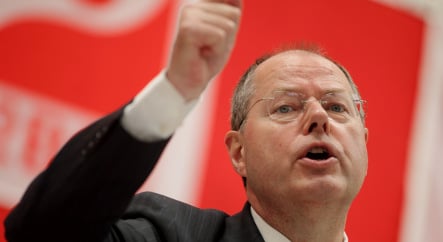“Finding and prosecuting tax criminals is not a political cops and robbers game, but an absolute duty of government,” he wrote in a guest article in Monday’s edition of the Hamburger Abendblatt newspaper. “Tax evasion is no trivial offence. If you evade tax you are harming other citizens and endangering the cohesion of our society,” he continued.
The German parliament is to debate a new bill on Thursday aimed at more effectively preventing Germans from relocating to so-called tax havens abroad. Referring to this, the minister wrote, “Taxpayers are justifiably asking themselves why they have to pay for the consequences of unrestrained financial capitalism.”
Steinbrück argued, “If those that have profited from these excesses then also hide their profits in tax havens, and therefore deny them to our society … then it can have dangerous effects on the legitimate foundations of our social market economy and our parliamentary democracy.”
According to the minister, there have been significant successes in the prevention of tax evasion and tax fraud on an international level, but improvements are still necessary in Germany’s domestic tax law. “Among other things, the new law proposed by the federal cabinet intends to make those who do business from tax havens answer to the tax authorities,” he said.



 Please whitelist us to continue reading.
Please whitelist us to continue reading.
Member comments